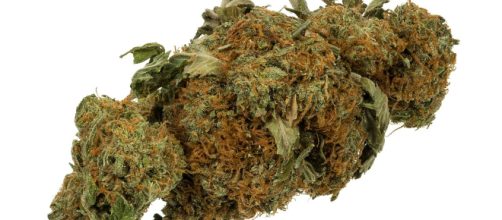According to CNN, the $9 billion recreational marijuana business is already on par with the entire snack-bar industry and takes in the same revenue as the pampers diaper business across the U.S. On January 1, 2018, recreational Marijuana officially became legal in California. California is the nation’s 3rd largest state, and 2nd largest if you discount Alaska, which most Americans will never visit. While most following the "legalize marijuana" debate have known this was coming for a while. It is significant that California went ahead with their plans, in the face of the Jeff Sessions' justice department renewing their pledge that, for the feds, marijuana remains illegal.
Marijuana movement in States, too strong to stop
Ordinarily, states having disagreements with federal policy would not directly flaunt their disapproval of such directives, as has California in the marijuana issue. However, the times we are living in are not normal. While not as politically important as the "sanctuary cities" disagreement, with the federal government, that some regions of the country are having, the marijuana movement is more socially important. With nine states already approving recreational use, including east coast states ME and MA, and 30 states approving medical marijuana, the levee is weakening. New Jersey is purported to be the next "crack in the damn" on the recreational side.
No, it will not take long for the whole country to be treating legalized marijuana as a source of revenue, jobs, and tax income for the state. What will remain will be the question of how to entice the black market producers and distributors to come out of the shadows. How will lawmakers coral the business so that it looks more like, say the liquor industry? Then it will be incumbent on law enforcement to come up with benchmark standards for impairment as is done with alcohol. The importance of this cannot be overstated.
Lawmakers need to plan to balance the revenue with the responsibility
The New York Times’ Thomas Fuller said that according to a federal report, Colorado, A state that legalized recreation use early on, experienced a doubling of traffic fatalities involving pot consumption between 2013-2016.
Moreover, CO. has experienced a 35% increase in traffic-related incidents over that time span. Impairment is impairment, in my view and the penalties for driving while under the influence do need to be broadened to include marijuana-impaired driving. Having said that, BDS Analytics, which follows the growing marijuana industry, gauges that U.S. marijuana revenue will reach $11 billion in 2018 and $21 billion by 2021. Constellation Brands, distributors of Corona and Modelo beers, is now investing in the marijuana business. Yes, the future is here to stay. Just think of the roads and bridges each state can repair. Just think of the higher pay for educators that could be afforded. Or, Mr. Sessions, we can continue to throw more people in jail for minor marijuana-related offenses, and increase the county's deficit while accomplishing the above; all under the guise of protecting our children.


